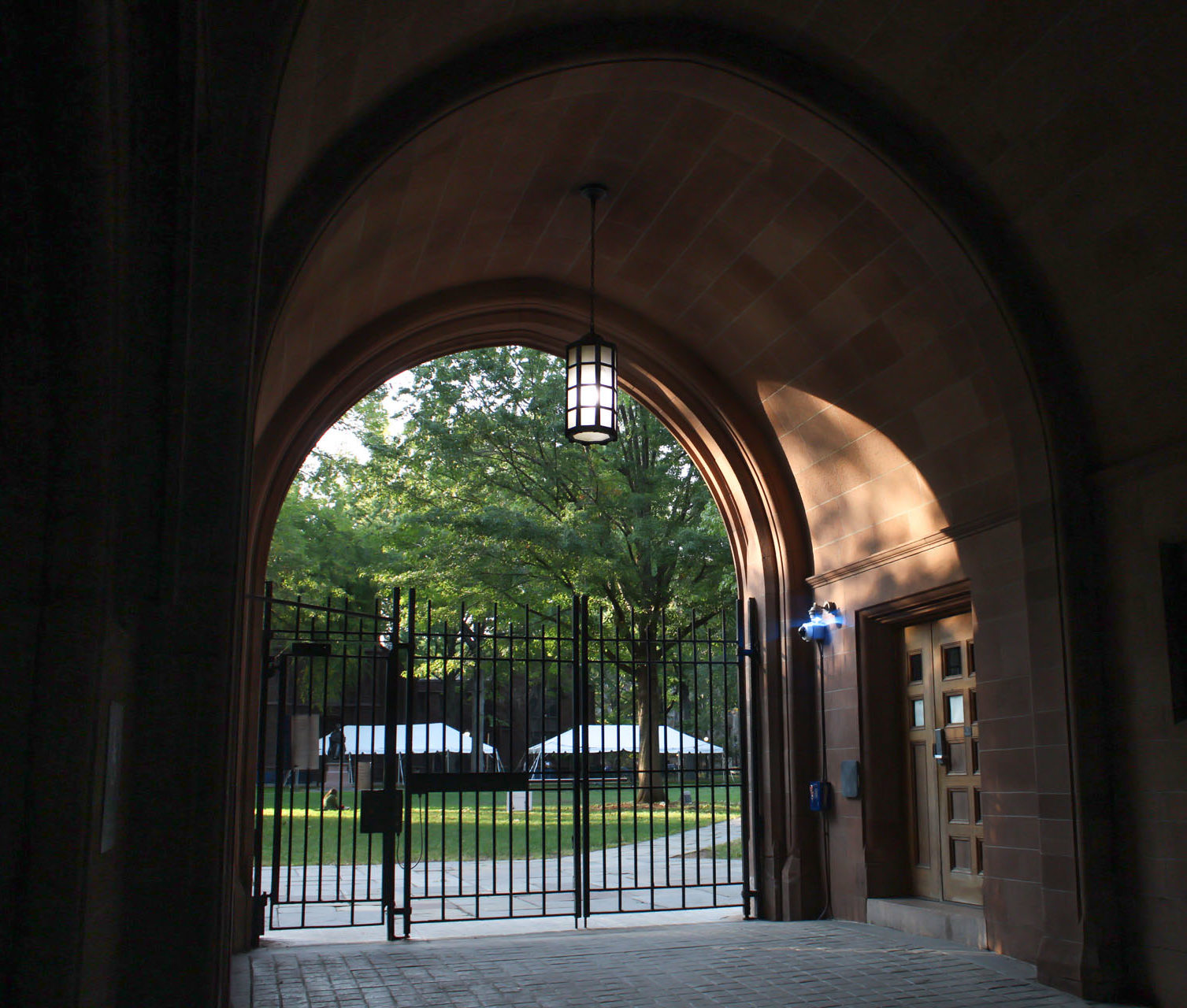
Yasmine Halmane, Contributing Photographer
Old Campus, a place that is normally a cornerstone of first-year life, currently houses none of those first years. This semester, it is instead home for some sophomores and juniors — and they don’t seem to mind.
Residential colleges are the heart of Yale’s undergraduate population, with many students claiming theirs as the best, even just one week into their time at Yale. Most students typically live on Old Campus during their first year at Yale College, but the COVID-19 pandemic has thrown a wrench into that tradition. Instead, Yale restructured its on-campus living arrangements so that Old Campus is now home to the College’s sophomore and junior classes, while first years reside in their residential colleges. Several students interviewed by the News weighed in on their living situations this year.
“It was tough to adjust to the idea of being on Old Campus, but the reality of being on Old Campus has actually been absolutely fine,” said Sarah Valeika ’22.
Valeika was among the many juniors who were initially unhappy to be living on Old Campus this year. After living in what she described as a “windowless basement” her first year, Valeika was afraid of experiencing similar physical isolation, especially after becoming so attached to the Saybrook community as a sophomore. However, Valeika said she was surprised to find a similar sense of belonging among the Saybrugians and Trumbullians she now lives with in Farnam Hall.
When asked if she agreed with Yale’s decision to house juniors on Old Campus, Valeika gave an enthusiastic yes. While she and her peers were initially skeptical of the change, after moving into Farnam and meeting her roommate, Valeika said that living on Old Campus worked out better than she had expected.
She was also thankful that Yale let juniors back onto campus, saying that “it’s a real gift in a time of a lot of chaos to be around other people who are experiencing the same things in very similar ways.”
Syd Bakal ’22 holds unique insight into life on Old Campus — even though Bakal is a junior, they have never lived in their residential college. After being annexed to Old Campus during their sophomore year, Bakal was looking forward to finally living in Grace Hopper, only to be reassigned to Old Campus once again. But despite the COVID-related circumstances, they acknowledge that their living situation is the only safe way for anyone to be welcomed back to campus, speculating that the University would have had a more difficult time enforcing public health guidelines if all the socially eager first years lived together in a relatively confined space.
So far, both Bakal and Valeika said their experience living on Old Campus is a positive one. Valeika’s only complaint has been the sporadic accidental fire alarms and a situation in which her building lost running water for an hour.
On the other hand, first years who made the decision to live on campus this fall have been exposed to living in residential colleges earlier than they would have in normal times. Although they are missing out on the prospect of mingling with first years across colleges and participating in the annual Old Campus snowball showdown, Sophia De Oliveira ’24 has found comfort in living within Morse College proper.
“It’s nice because wherever you go in Morse there’s always a friendly face and somebody to catch up with,” De Oliveira said. “I think with all the uncertainty going on in the world, living at Morse has really helped create this constant and tight-knit community that’s been extremely comforting during these times. I also think living at Morse instead of Old Campus this year has instilled a large amount of residential college pride in first years this year, more so than if we were to be living on Old Campus. It really feels like a family here, especially with our FroCos and Head of College always looking out for us.”
While Morse has been a positive community for the unprecedented circumstances of this semester, De Oliveira said that she “definitely would have loved to live” on Old Campus during normal times.
But for students like Yuriy Dekhkanov ’23, the prospect of living on Old Campus held little to no appeal. As a Sillimander, Dekhkanov found that there were many upsides to living in his residential college that outweighed the advantages of living on Old Campus, including the views of the sunrise from his common room, the spacious courtyard and, in particular, being close to the dining hall.
“That was probably the highlight of living in the residential college: what’s happening in the dining hall,” Dekhkanov said. “That’s where you are able to disconnect from your studies and just go and get some lunch. And, you know, take that hour to have a good meal time with friends, and just fully relax. Then go back to the library and start writing. So it’s like that kind of place where you kind of just join a place with a bunch of people, they’re all chatting, and you go have a good time.”
Having close access to the amenities of the residential college, as well as feeling more rooted in his Silliman community, was more appealing to Dekhkanov than living on Old Campus. Even though events are hosted on Old Campus for first years, Dekhkanov said his experiences with the events organized by Silliman’s Head of College Office have played a greater part in establishing the feel of a home within his college.
Old Campus became the typical place of residence exclusively for first years in 1933.
Marissa Blum | marissa.blum@yale.edu
Ben Scher | ben.scher@yale.edu







